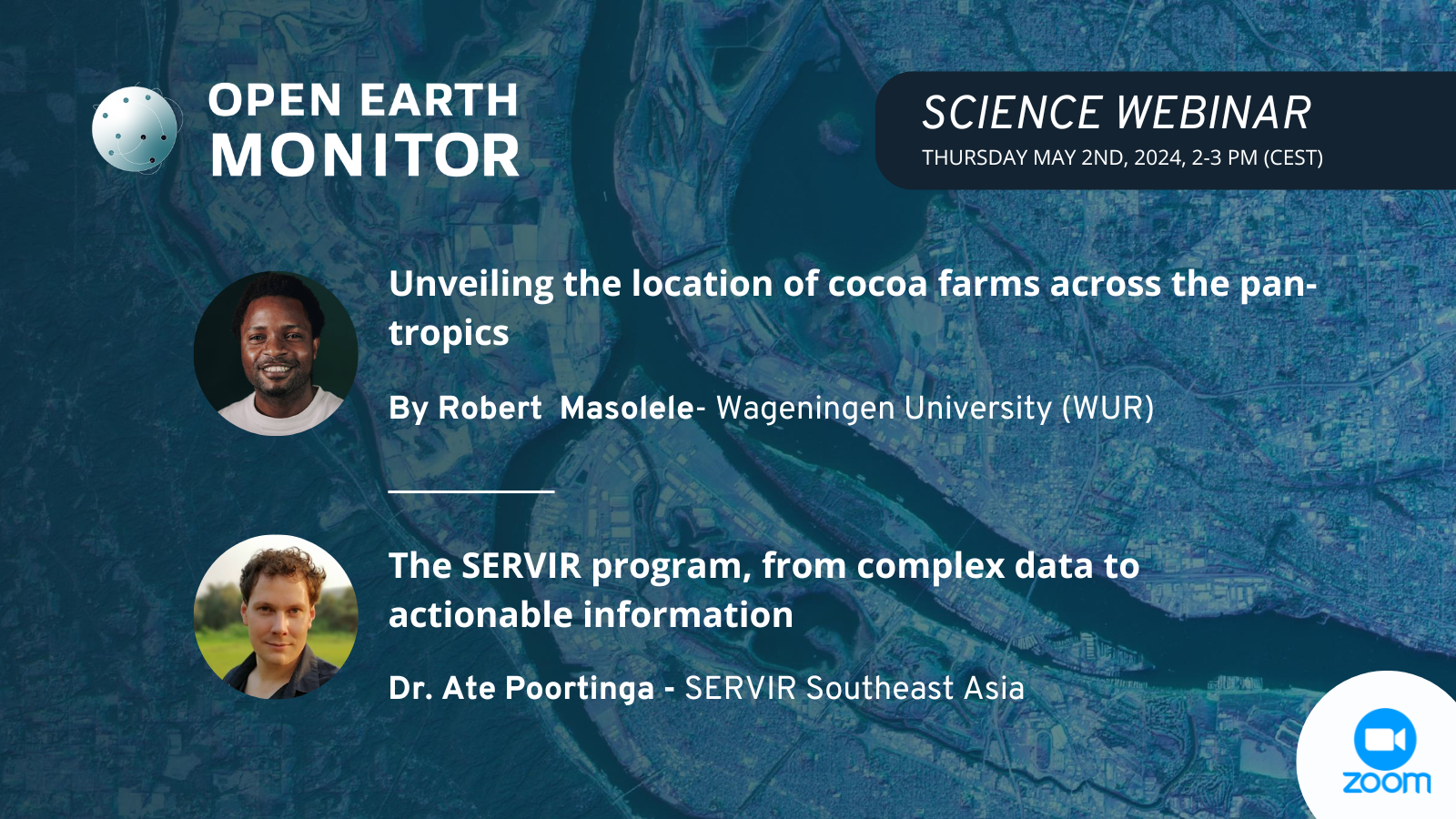
- This event has passed.
Science Webinar – 2nd May, 2024

The Open-Earth-Monitor project is pleased to invite you to the 13th edition of the Science Webinars, starting this month with a new format focused on the project use cases. These talks and discussions will now be held once every two months and will host both use case leaders and stakeholders to discuss the project outputs and related outcomes.
Register now to attend the Zoom Webinar freely!
Join us to listen to the following presentations and ask experts your questions:
1) Unveiling the location of cocoa farms across the pan-tropics by Dr Robert Masolele, Post-doctoral researcher at Wageningen University (WUR)
Cocoa cultivation is a cornerstone of agricultural economies across the pan-tropical regions, supporting millions of livelihoods and contributing significantly to global cocoa production. However, accurately mapping cocoa farm locations remains difficult due to the complex and heterogeneous nature of tropical landscapes. To address this challenge, Dr Masolele and his team’s research aims to employ deep learning methodologies to unveil the locations of cocoa farms across the pan-tropics. Through this research effort, they aspire to provide valuable insights into cocoa farm locations, facilitating sustainable cocoa production practices, land management strategies, and conservation efforts across the pan-tropical forests, thus paving the way for informed decision-making.
2) The SERVIR program, from complex data to actionable information by Dr. Ate Poortinga, currently employed by the Spatial Informatics Group in the SERVIR-Mekong project in Bangkok
Over the past six years, Dr. Ate Poortinga has been actively involved with the SERVIR program, a collaboration between the U.S. Agency for International Development (USAID) and NASA. This program utilizes space technology, open data, and open science to address a wide range of environmental and development challenges. In his presentation, Dr. Poortinga will explain how SERVIR leverages data and science from NASA, the European Space Agency (ESA), and academic institutions to transform complex data into actionable information. This information aids governments, academic institutions, civil society, and vulnerable communities in building resilience and promoting sustainable development.”

